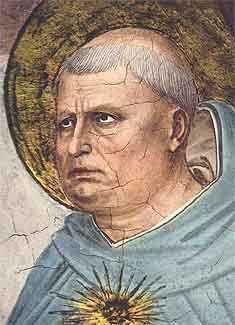A lot’s been said by the learned likes of Jim Martin, S.J., Tom Reese, S.J., David Gibson, RNS, and others about this business of canonizing popes, but in anticipation of Sunday’s double ring ceremony for John XXIII and John Paul II, let me stick in my two medievalist’s cents.
As Gibson reports, almost all of the 83 pope-saints achieved that status during the first millennium of the common era. What’s important to know is that the papacy at that time was a feeble institution. Sure, there were a few impressive characters like Leo I and Gregory the Great, but the office was more important symbolically than functionally. Along with the early popes who achieved sainthood via martyrdom, the acclamation of sancti pontifici points to the spiritual appeal of the See of Peter, not its temporal throw-weight.
It was only after the year 1000 that the papacy grew into a powerful institution — controlling significant territory, pushing around kings and emperors, sending the faithful out on crusade, and extending legislative, judicial, and executive authority over the entire Western church. To be bishop of Rome was the toughest job in Christendom and sanctity was well down on the list of qualifications. Innocent III and Paul III were the greatest of popes, but they’ve never been considered anything like saints.
So the Church all but gave up canonizing its top dog. Only three popes were made saints in the second millennium through World War II. Then, in 1954, the canonization of Pius X ushered in an era when it suddenly became rare for a pope not to be set on the path to sainthood.
It could be argued that this routine canonization of popes harks back to the first millennium, bearing witness to the papacy’s temporal impotence. As Joseph Stalin famously quipped in 1935, “The Pope! How many divisions has he got?”
But with Stalin’s realm a victim, in some measure, of the Polish pope who will be canonized in a couple of days, that doesn’t seem quite right. Rather, I’d say, papal saint-making is the Vatican’s declaration of spiritual power. In our time, popes have become the most consequential religious figures on the planet. Are they therefore saints, ex officio as it were? That’s a question that Fr. Reese, and Maureen Dowd, NYT, and even Fr. Martin, answer in the negative. Could the Church have erred in canonizing them?
Considering whether some saints canonized by the Church might actually be in Hell, (Saint) Thomas Aquinas reckoned that, unlike true matters of faith, it was only “piously to be believed” (pie credendum) that the judgment of the Church could not err in this regard. His 13th-century contemporary, the great canon lawyer Pope Innocent IV, allowed as how “even if the Church should err, which is not to be believed, nevertheless God would accept prayers extended in good faith through such a one.” Another contemporary, the magisterial Cardinal Henry of Segusio, began his consideration of the question: “If the Church should err, which nevertheless is not to be believed, although it can happen…”
Their point would be that if you have your doubts about a canonized pope, try to get over them; but if you can’t, it doesn’t really matter whether he’s a saint or not.






